April 2, 2025 | 23:22 GMT +7
April 2, 2025 | 23:22 GMT +7
Hotline: 0913.378.918
April 2, 2025 | 23:22 GMT +7
Hotline: 0913.378.918
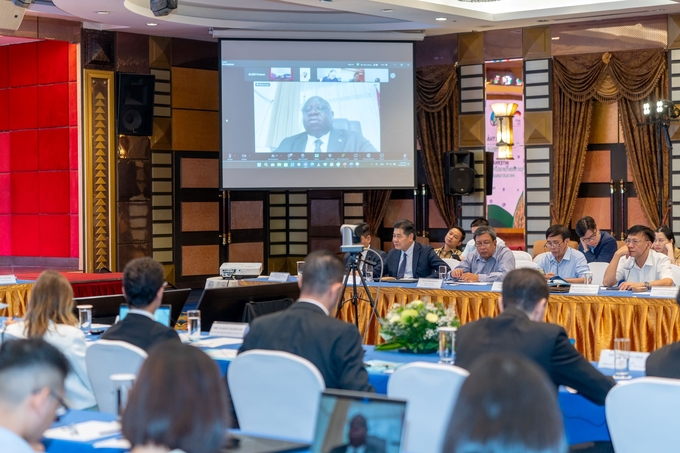
Dr. Abu Bakarr Karim, Minister of Agriculture and Forestry of Sierra Leone at the workshop virtually, discussing how Africa can address the food security crisis and move towards sustainable development: The case of Sierra Leone. Photo: GIZ.
It is impossible to discuss world peace if a significant portion of the world is food insecure, regardless of how tranquil the world may be. Therefore, we, the South-South Community, are acutely aware of the potential of food security to enhance global resilience during both peaceful and unavoidable crises.
"The South-South Cooperation, if optimized, could significantly contribute to achieving and sustaining timeless food security," shared Dr. Abu Bakarr Karim, Minister of Agriculture and Forestry of Sierra Leone, at the International Workshop on South-South Cooperation. He was discussing how Africa can address the food security crisis and move towards sustainable development: The case of Sierra Leone.
He also concurred that it was logical to propose that individual countries in the South-South Cooperation family, including those in Africa, should be internally prepared to address food security and crisis situations in order to achieve this reality.
The Minister stated that Sierra Leone has identified binding constraints to its internal readiness and has initiated the process of system building or strengthening, as well as the implementation of processes to eliminate or mitigate these constraints. The country's identified binding constraints are, to varying degrees, generic to numerous regions of Africa and to other members of South-South Cooperation, as evidenced by a comparative analysis of countries in the sub-region and the continent as a whole.
The constraints that are binding encompass the general or relative absence of the following:
A comprehensive agriculture sector plan that considers the strengths, weaknesses, opportunities, and hazards of the country;
Agriculture is declared and supported as a priority by the government at the highest level of the Presidency.
Encouraging private sector investment in agriculture while ensuring that the country's smallholder producers are not disadvantaged;
Making agriculture more appealing to men, women, and youth; Providing assistance to underprivileged individuals in the agricultural sector;
Conducting a comprehensive national survey of the condition of the country's agricultural soils; Increasing the appeal of agricultural, particularly rural communities, to the general public, particularly the youth;
Developing a comprehensive national irrigation master plan that acknowledges the multiple uses and users of water; Implementing agriculture through a food systems, not agriculture-exclusive venture; Developing a multi-market approach to the production and value addition of agricultural products.
Dr. Abu Bakarr Karim, the Minister of Agriculture and Forestry of Sierra Leone, confirmed that the aforementioned requirements are of paramount importance to numerous developing countries in the context of South-South Cooperation.
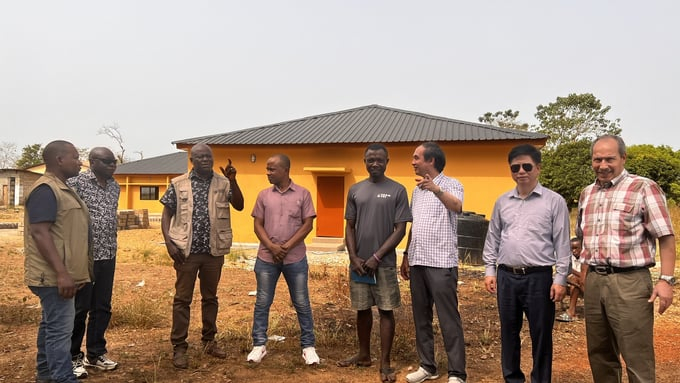
Vietnamese experts visited Sierra Leone earlier last year as part of a South-South Cooperation (SSC) initiative. Photo: NM.
A delegation of Vietnamese experts visited Sierra Leone earlier last year as part of a South-South Cooperation (SSC) initiative. The joint mission, which was conducted within the framework of the South-South and Triangular Cooperation between FAO, Sierra Leone, and Vietnam, was to develop a proposal for a cooperation program that would address Sierra Leone's rice value chain requirements.
During their visit, the delegation had the opportunity to visit proposed project sites, such as training and research facilities, exchange ideas with community members and technical teams, and engage in working sessions with stakeholders in the rice sector. The mission concluded with a stakeholder debriefing meeting, underscoring the need for expertise in developing the rice value chain. This expertise encompasses rice production, irrigation, rice breeding, mechanization, post-harvest management, and capacity building through study tours, field training, and trainer training.
This initiative continues the successful outcomes achieved through the support provided to Sierra Leone by the FAO-China Trust Fund project. Sierra Leone will contribute roughly USD 5 million to the project through a Unilateral Trust Fund (UTF) as a significant contribution from a Least Developed Country to achieve self-sufficiency in rice. The initiative is timely in light of the current food crisis.
This joint mission is a testament to the dedication of the FAO, Sierra Leone, and Vietnam to South-South Cooperation, fostering the growth of Sierra Leone's rice sector through a constructive partnership.
Vietnam is one of the world's greatest rice exporters. It has established a goal of becoming a transparent, responsible, and sustainable food producer and provider. The country is committed to achieving 'net zero' emissions by 2050 through a green, low-emission agricultural system.
Vietnam is prepared and dedicated to extending South-South Cooperation (SSC) to support African nations in assuring food security and nutrients, while simultaneously pursuing the objectives of sustainable development, prosperity, and green growth, as evidenced by its prior experience with international backers.
Translated by Linh Linh
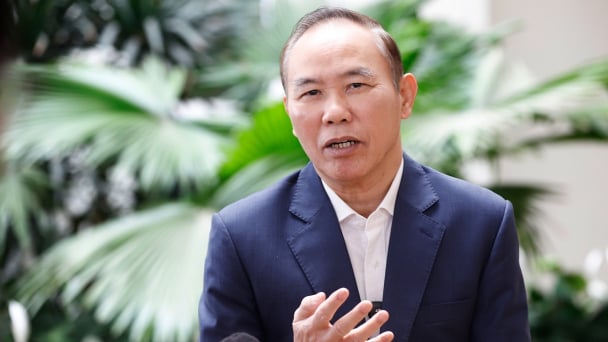
(VAN) Deputy Minister Phung Duc Tien disclosed that Vietnam's agricultural export value increased by 13.1% year over year to USD 15.72 billion.
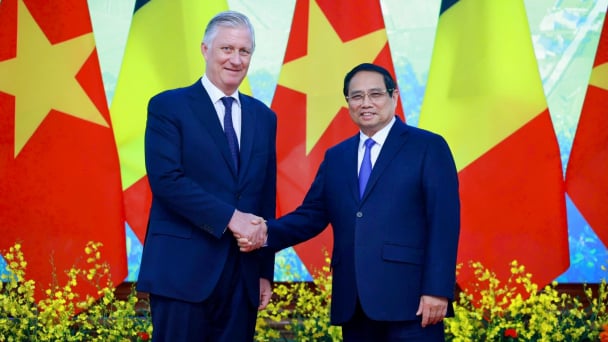
(VAN) During a meeting with the King of Belgium on April 1, Prime Minister Pham Minh Chinh urged Belgium to push the EC to lift the IUU 'yellow card' on Vietnamese seafood.
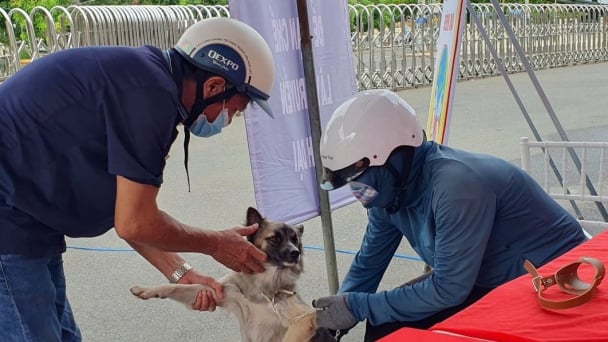
(VAN) Binh Thuan Sub-Department of Crop Production and Livestock Production requires localities to strictly handle cases of not complying with rabies vaccination.
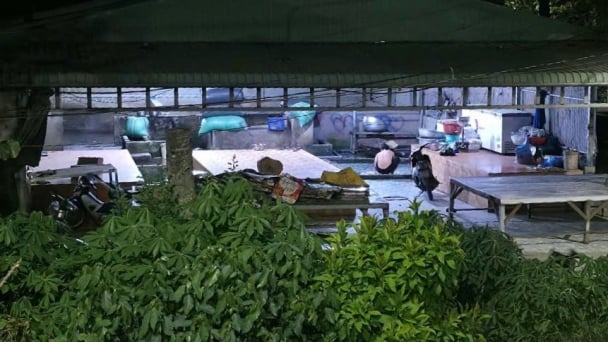
(VAN) In Tien Giang, there exist non-licensed cattle slaughterhouses stealthily operating, sanctioned many times but still recidivated.
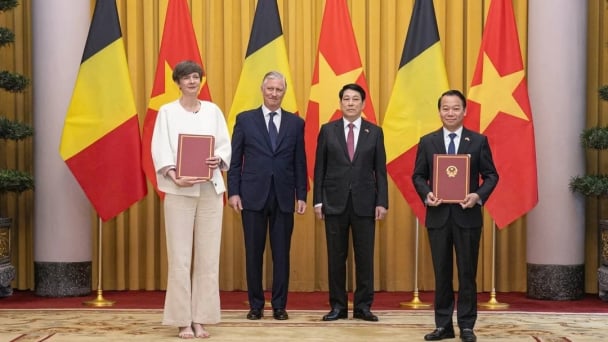
(VAN) President Luong Cuong and King Philippe of Belgium emphasized the importance of implementing the framework for the Strategic partnership on agriculture during their meeting.
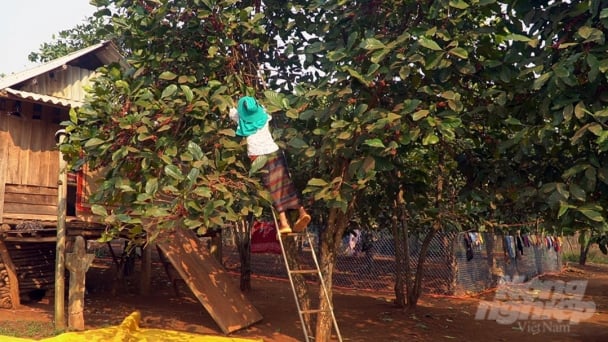
(VAN) Liberian coffee prices in Quang Tri have reached an all-time high since the beginning of the crop year, bringing great excitement to farmers.
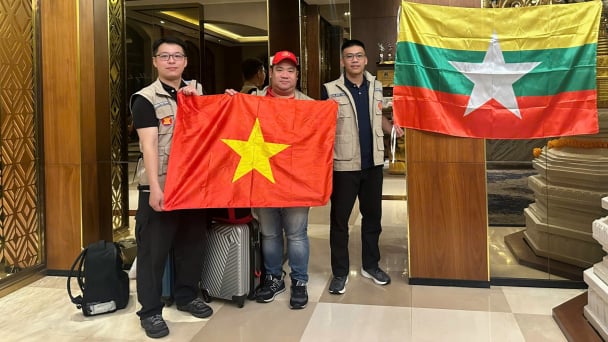
(VAN) Vietnam Disaster and Dyke Management Authority (Ministry of Agriculture and Environment) has dispatched three personnel to Myanmar to assist the ASEAN team in the aftermath of the recent natural disaster.